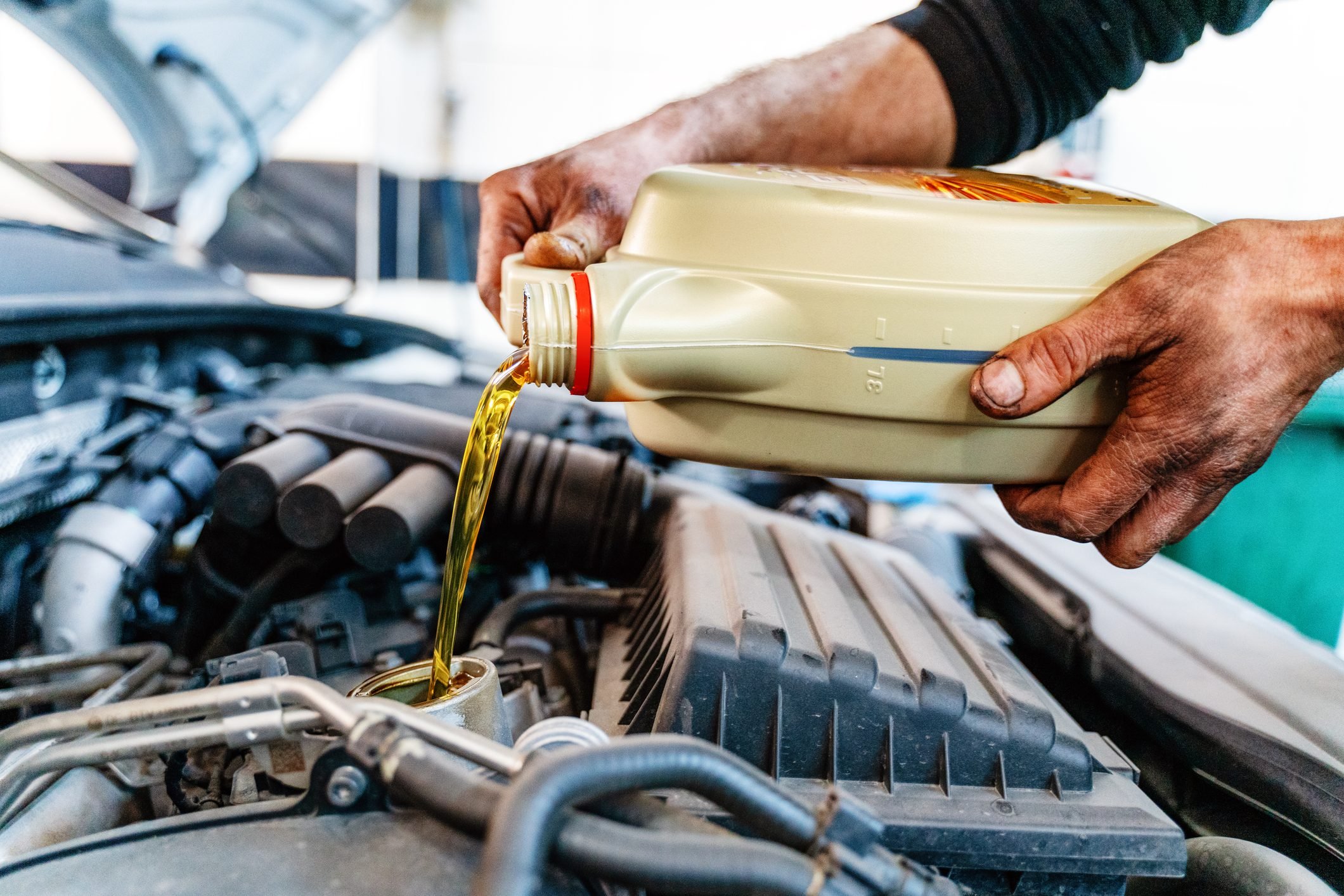Fast Oil Change Lockhart services that extend the life of your car.
Fast Oil Change Lockhart services that extend the life of your car.
Blog Article
Maximize Your Car'S Efficiency With Regular Oil Modifications
Keeping your vehicle's performance is a diverse undertaking, with normal oil changes standing out as a vital component. Fresh engine oil plays a pivotal role in making sure optimum lubrication, reducing friction, and preventing wear on important elements. Numerous motorists forget the indicators that show a demand for an oil adjustment, possibly jeopardizing their automobile's durability.
Value of Routine Oil Modifications
While numerous automobile owners may overlook the significance of normal oil changes, neglecting this essential maintenance job can result in serious consequences for engine efficiency and longevity. Engine oil plays an essential duty in lubricating moving components, lowering rubbing, and preventing overheating. Gradually, oil deteriorates due to direct exposure to warmth and pollutants, which decreases its effectiveness.
Falling short to alter the oil consistently can cause the buildup of sludge and particles, which can block important engine components and bring about enhanced wear. This not only endangers engine effectiveness but can additionally lead to pricey repair services or perhaps complete engine failure. In addition, old oil loses its ability to counteract acids created throughout combustion, which can lead to deterioration and further damages.
Moreover, numerous automobile manufacturers suggest details oil change periods, usually based on mileage or time. In summary, regular oil modifications are not just a suggestion; they are a vital part of liable vehicle maintenance that safeguards the engine and improves total efficiency.
Advantages of Fresh Oil
Altering to fresh oil uses countless advantages that straight improve engine performance and effectiveness. New oil decreases friction between engine components, which not just lessens wear however likewise contributes to smoother operation.
In addition, fresh oil properly cleanses the engine by putting on hold pollutants and avoiding sludge buildup. Over time, oil becomes infected with dirt, metal particles, and burning byproducts. Frequently replacing oil ensures that these harmful materials are gotten rid of, promoting a cleaner and healthier engine setting.
Additionally, fresh oil aids in optimum temperature regulation. It dissipates warmth better, preventing getting too hot and prospective damage to engine parts. This is especially important throughout peak performance scenarios, where warm buildup can harm engine functionality.
Indications Your Oil Demands Changing
Engine oil is the lifeline of your vehicle, and identifying when it needs altering is crucial for preserving optimum performance - Oil Change Lockhart. Numerous signs suggest that it's time for an oil adjustment, and staying vigilant can protect against engine damage and pricey repairs
First, inspect the shade and consistency of the oil. Fresh oil is normally brownish-yellow and smooth, while old oil may show up dark and abrasive, indicating contamination and minimized performance. A change in viscosity can additionally signify that the oil has actually broken down and is no much longer properly lubing engine parts.

Another warning indication is the oil adjustment light on go to my blog your dashboard. This alert functions as a tip that the oil has actually reached its lifespan or that there is an underlying issue needing focus. Additionally, unusual engine noises, such as knocking or ticking, may suggest inadequate lubrication because of abject oil.
Last but not least, if you notice oil spots or puddles under your car, it may suggest a leakage that demands immediate assessment and possible oil adjustment. Listening to these indicators will guarantee your engine operates smoothly and efficiently.
Choosing the Right Oil
Choosing the appropriate oil for your vehicle is vital for making certain optimum performance and longevity. This guidance will certainly guide you toward the correct thickness quality, such as 5W-30 or 10W-40, which suggests the oil's thickness at various temperature levels.
Next, consider the sort of oil: standard, synthetic, or a blend. Standard oil is stemmed from petroleum and appropriates for older automobiles, while synthetic oil supplies premium security and efficiency for modern-day engines, particularly under extreme conditions. Artificial blends combine the advantages of both and are commonly an affordable option.
Furthermore, search for oils that fulfill market standards, such as API (American Oil Institute) or ACEA (Association des Constructeurs Européens d'Automobiles) accreditations. These indications guarantee that the oil has been checked for quality and efficiency. Ultimately, selecting the right oil not just enhances engine effectiveness but likewise adds to the general wellness of your car, leading the way for smoother driving experiences.
Oil Change Regularity Recommendations

Factors affecting oil change regularity include driving problems, such as stop-and-go web traffic, extreme temperature levels, and pulling heavy you can find out more lots. Under serious problems, it may be sensible to alter the oil more regularly to avoid engine wear. In addition, some contemporary vehicles come furnished with oil life monitoring systems that offer customized referrals based on driving habits, which can additionally enhance the oil adjustment schedule.
It's critical to consult your owner's guidebook for particular referrals tailored to your car. Following these guidelines not just maintains engine health yet also improves fuel effectiveness and lowers emissions. To conclude, regular oil modifications, timed suitably based on different aspects, are a fundamental element of automobile upkeep that can considerably affect efficiency and longevity.
Final Thought

Report this page